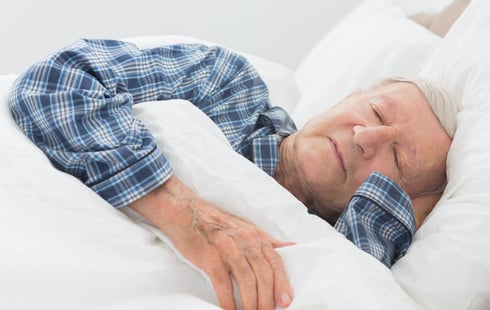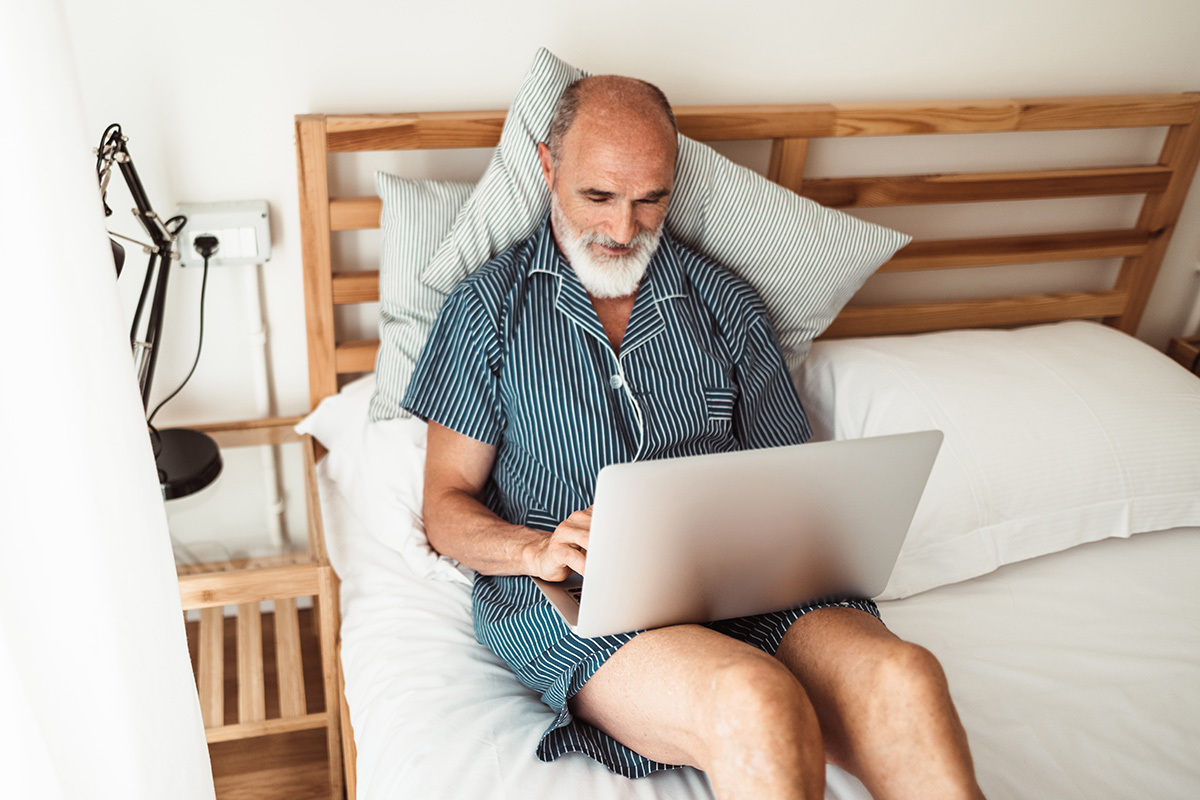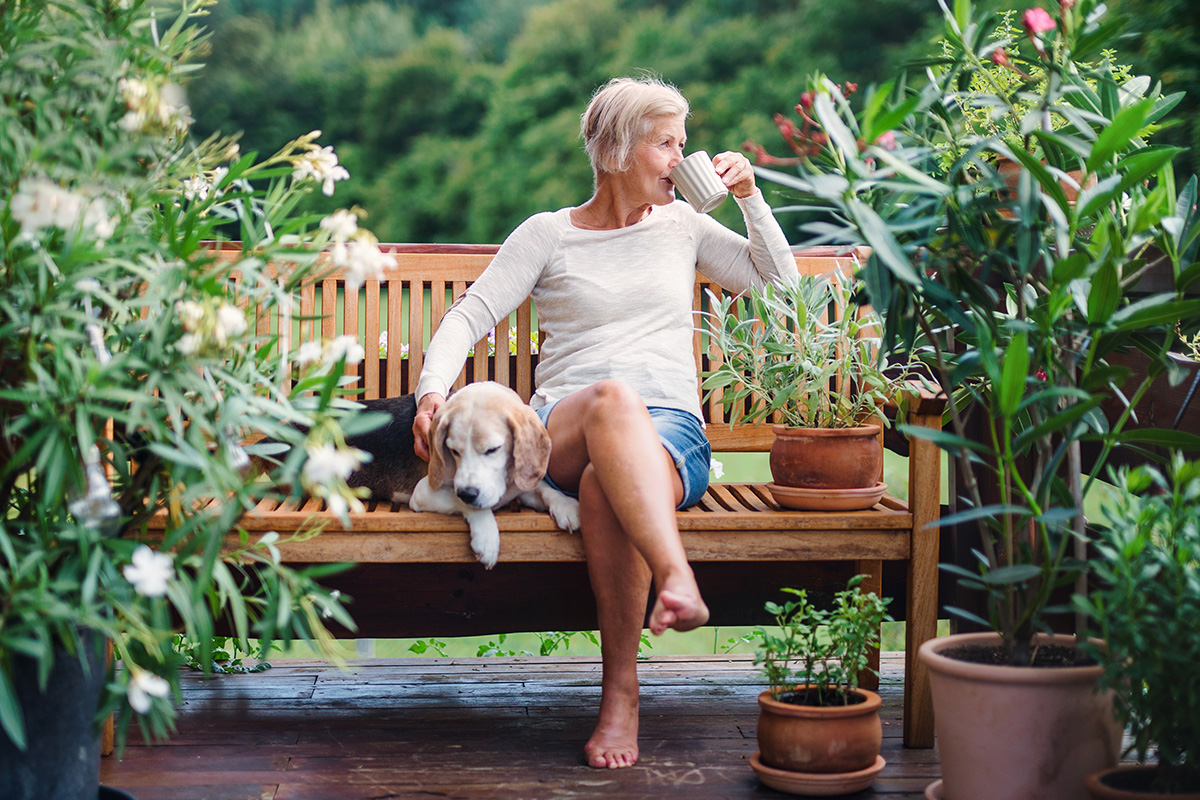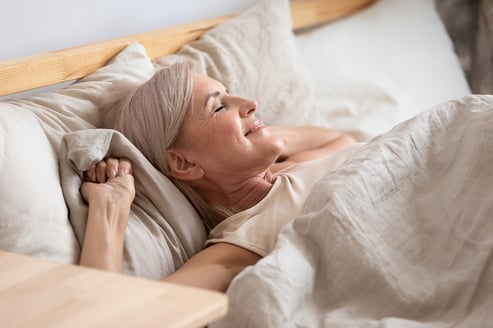How Much Sleep Should an Older Adult Get?
Shelli Bakken | Sep 14, 2022
The sun goes down. You lock the front door, change into your pajamas, fluff your pillow, and set your alarm.
You've been yawning for the past hour, so falling asleep should be easy. But as soon as you lie down, turn off the light, and get comfortable, suddenly you're wide awake.
Sleep is important for your both your body and your mind. So how much sleep should an older adult get each night? And when should you be concerned when sleep seems to evade you for hours? Let's dive deeper into how much sleep we need as we age (and how to get it).
Why is sleep so important as we age?

Getting a good night's sleep is as important to the human body as air, water, and food. There needs to be a balance of both quality and quantity to stay healthy and alert.
As people age, however, there tends to be a point where both the quality and quantity of sleep begins to taper off. This can leave you more susceptible to feeling lethargic, lacking energy, or even physically ill. Lack of sleep has even been shown to have an impact on our memories and cognitive abilities, which already challenge many seniors.
How many hours of sleep do older adults need?
There are no specific studies that can prove exactly how much sleep any one individual needs, and it varies by age, activity level, hormones, or something as innocuous as how much light you're exposed to in your home. But we know that sleep is important because humans spend at least one-third of their lives in sleep mode.
The National Sleep Foundation states that an average adult needs 7 to 8 hours of sleep each night. The same is true no matter if you are 30, 50, or 70 years of age. The problem is many seniors report that sleep is not as restful as it was in their previous years. In fact, as we age, there's an upswing in periods of insomnia, light stage sleep, and the chance of being woken by small sounds.
Why is it harder to sleep when you get older?
There are a wide range of factors that contribute to sleeping difficulties as we age. For one, our bodies naturally produce lower levels of hormones, such as melatonin and cortisol, both of which encourage our bodies to sleep. As a result, we experience fewer deep sleeps. Many seniors also struggle with typical aches or pains, making it common for older adults to struggle to fall and stay asleep.
5 tips for getting better sleep as you age
1. Regulate Lighting Per Your circadian rhythm
Your circadian rhythm (or the internal switch that tells your body it's time for sleep) can have everything to do with your actual sleep pattern. Changes to your daily routine, or changes in health, can throw off your natural rhythm. This is why you start to feel sleepy and sluggish on cloudy days, for example.
Your personal circadian rhythm is what controls your sleeping patterns. To help establish and maintain a healthy sleeping routine, always make sure that the lighting is bright when you are awake, and darken the room as much as possible when you go to sleep.
2. No Electronics in Bed
That circadian rhythm we're talking about? You can trick your body into thinking it's daytime if you spend too much time on screens right before bed. Help your body understand when it's time to go to sleep by avoiding watching television, using a laptop, or looking at your phone before trying to drift off to sleep.
3. Don’t Go to Bed Until You’re Tired
If it feels like you are going to retire to bed only to toss and turn, it's not time to try going to bed. Instead, wait until your body signals that you are tired enough to get some rest. If you’re stressed or have had a busy day, find a way to unwind and relax to help calm your body and mind. This might mean reading a book, taking a bath or shower, or listening to some soothing music.
4. Avoid Caffeine Later in the Day
If you have trouble falling asleep at night, one of the first things to look at is your daily caffeine intake. If you typically drink several cups of coffee or caffeinated soda throughout the afternoon and early evening, try cutting back to allow your body and mind to wind down. It's also smart to be conscious of foods that have natural caffeine in them, as these can be easily overlooked and unknowingly cause sleeping problems.
5. Avoid High-Processed Foods, Sugars, and Carbohydrates Close to Bedtime
Nothing says "I'm wired and cannot sleep" quite like having excess amounts of energy from sugar in your bloodstream. If you do eat sweets into the later afternoon and evening, try drinking a glass of water and do a moderate exercise routine shortly after. This will help bring down your blood sugar quickly.
If you still find that you have problems getting and staying asleep, talk with your doctor about how you can improve your sleep cycle and routine. There is help out there for medical problems and insomnia that will get you to the right amount of sleep for your body. It’s important for your overall health and well-being.

